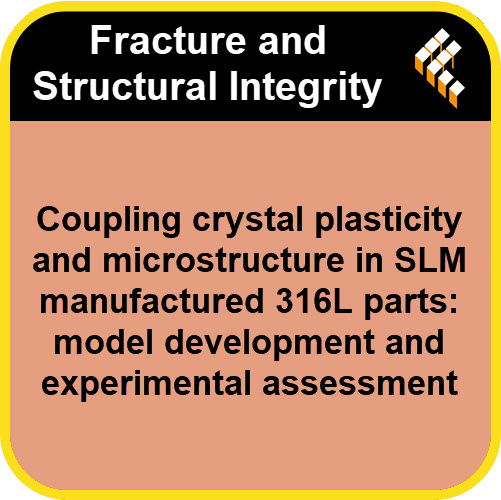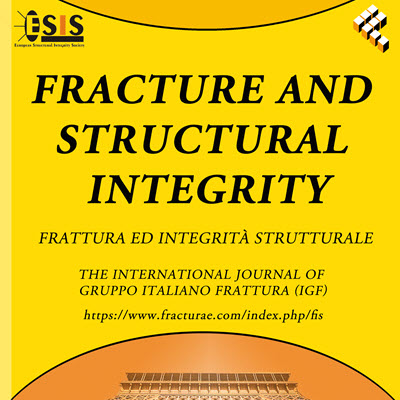Fracture and Structural Integrity: The Podcast
Stay at the cutting edge of fracture mechanics and structural integrity research with the official podcast of the Fracture and Structural Integrity journal. Join us for insightful interviews with top researchers, in-depth discussions of groundbreaking papers, and explorations of emerging trends in the field.
RSS Spotify YouTube Amazon Music
Coupling crystal plasticity and microstructure in SLM manufactured 316L parts: model development and experimental assessment
2025-11-23
https://www.fracturae.com/index.php/fis/article/view/5671
Additive manufacturing is extensively used for the production of complex-shaped parts from metals and polymers. Because of the influence of various physical factors, the structure of materials processed under different processing conditions may vary considerably, altering their properties. Application of a multi-level crystal plasticity approach helps explicitly describe the structure of materials at different scale levels. It makes possible the evaluation of basic mechanical properties of the samples fabricated by layer-wise laser melting. In this work, a two-level statistical constitutive model is suggested for calculation the main mechanical characteristics (elastic modulus, offset yield stress) of the AISI 316L stainless steel samples produced by selective laser melting. The model explicitly considers the grain structure and texture of metal parts, twinning defects, and residual stresses in the as-build structure of materials. Under predefined loading conditions, the primary mechanism of inelastic deformation is through intra-granular slips of edge dislocations. Thus, the mechanism of material hardening has been described by a modified form of the Hall-Petch law, where the boundaries of grains and original twins are counted as effective barriers to dislocations. All model parameters are properly identified based on own experimental data and the data found in literature. The elastic moduli and yield stresses are calculated at different residual deformations and are found to be in fair agreement with experiments.
DownloadFiletype: MP3 - Size: 3 MB - Duration: 12:47m (320 kbps 44100 Hz)
Powered by Podcast Generator, an open source podcast publishing solution | Theme based on Bootstrap
